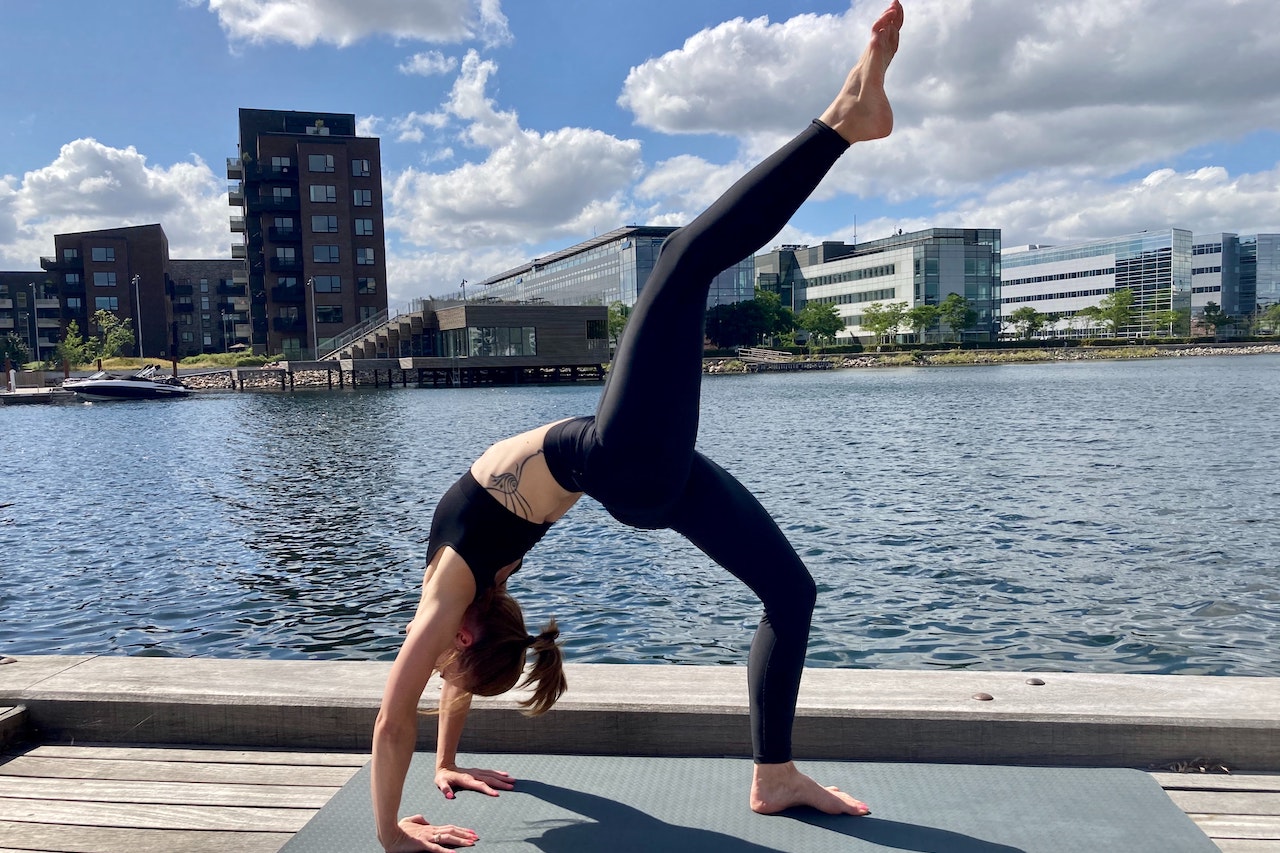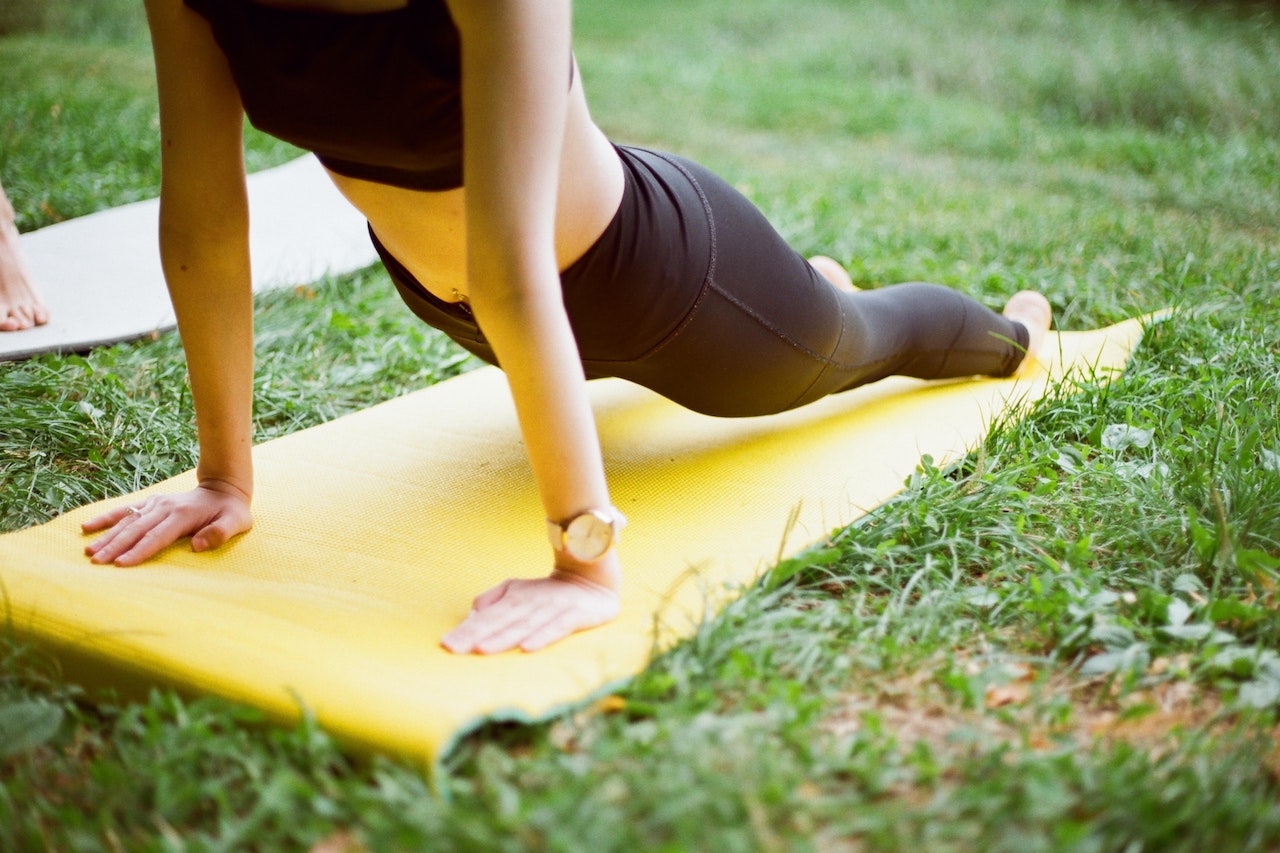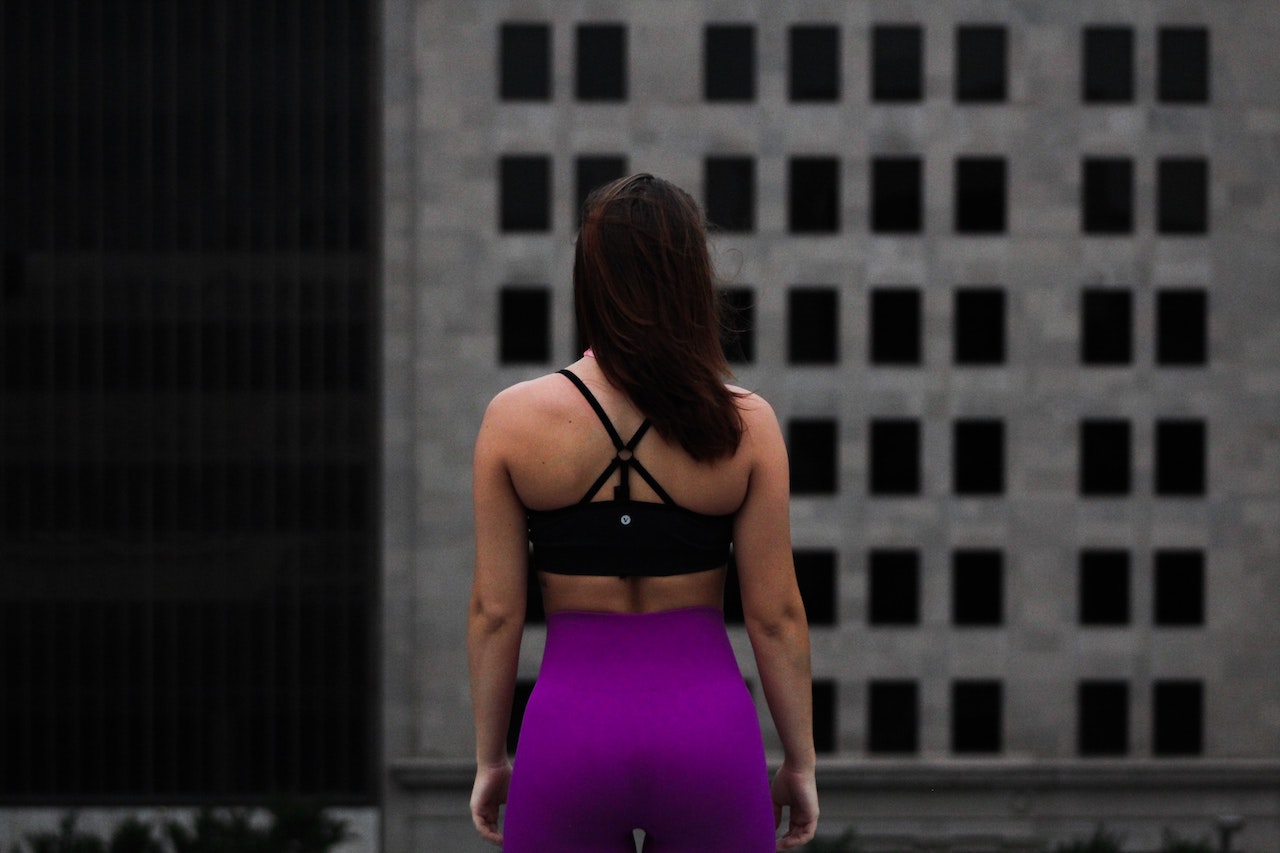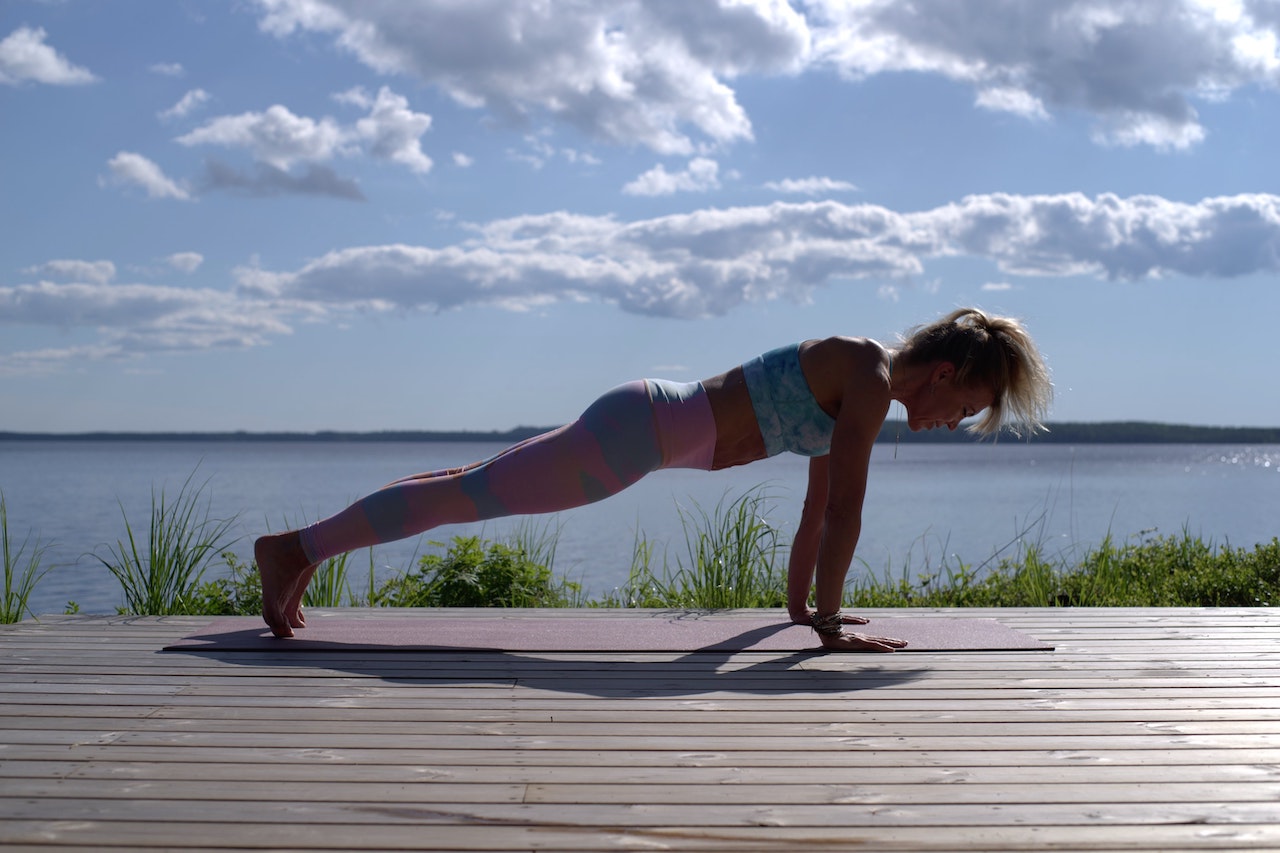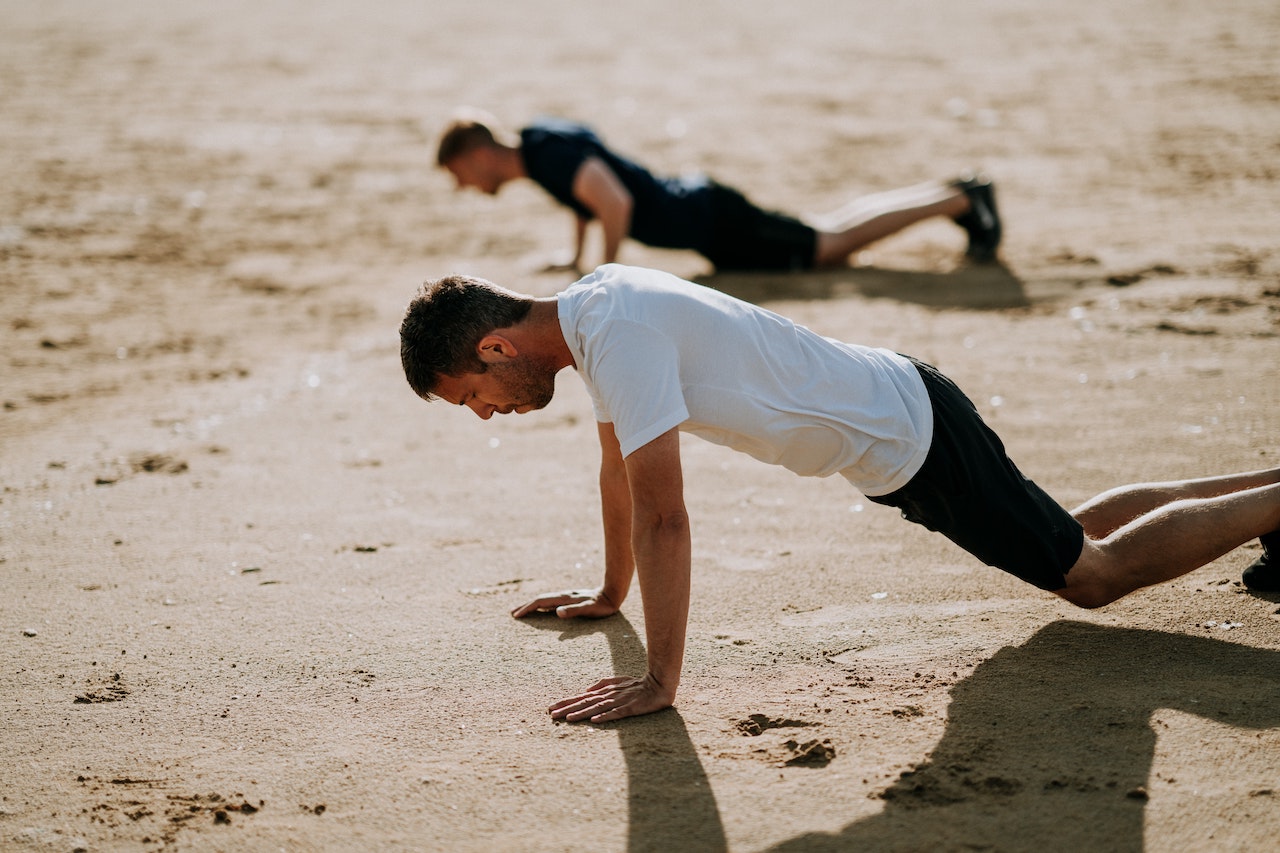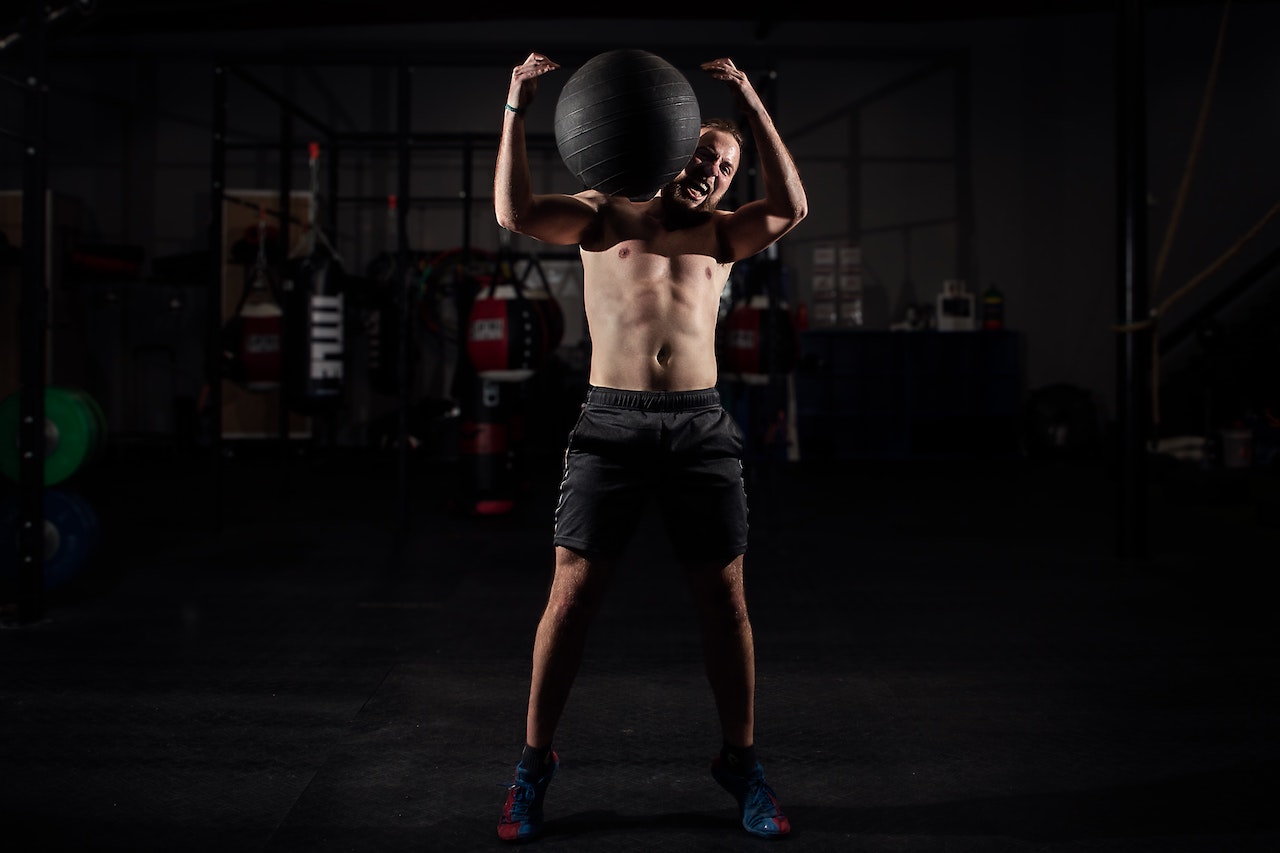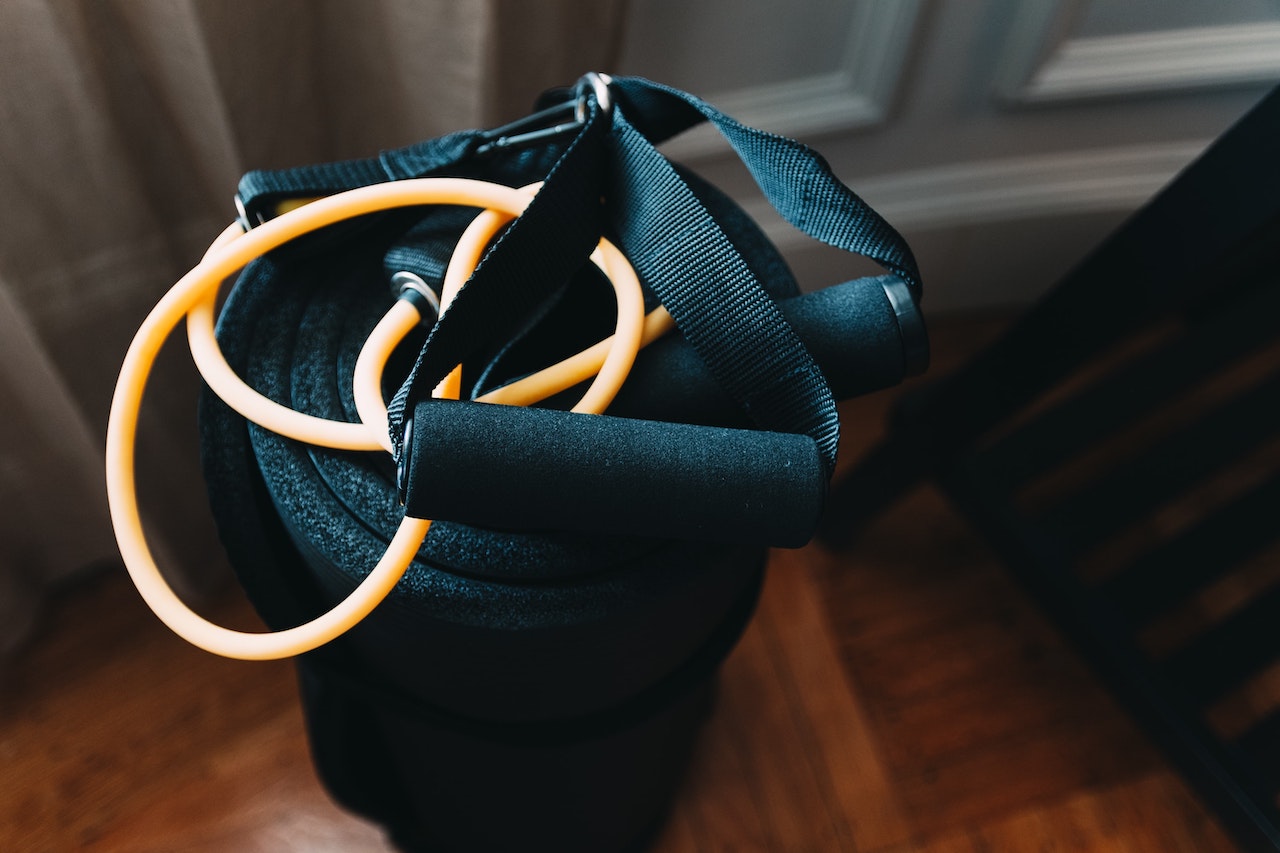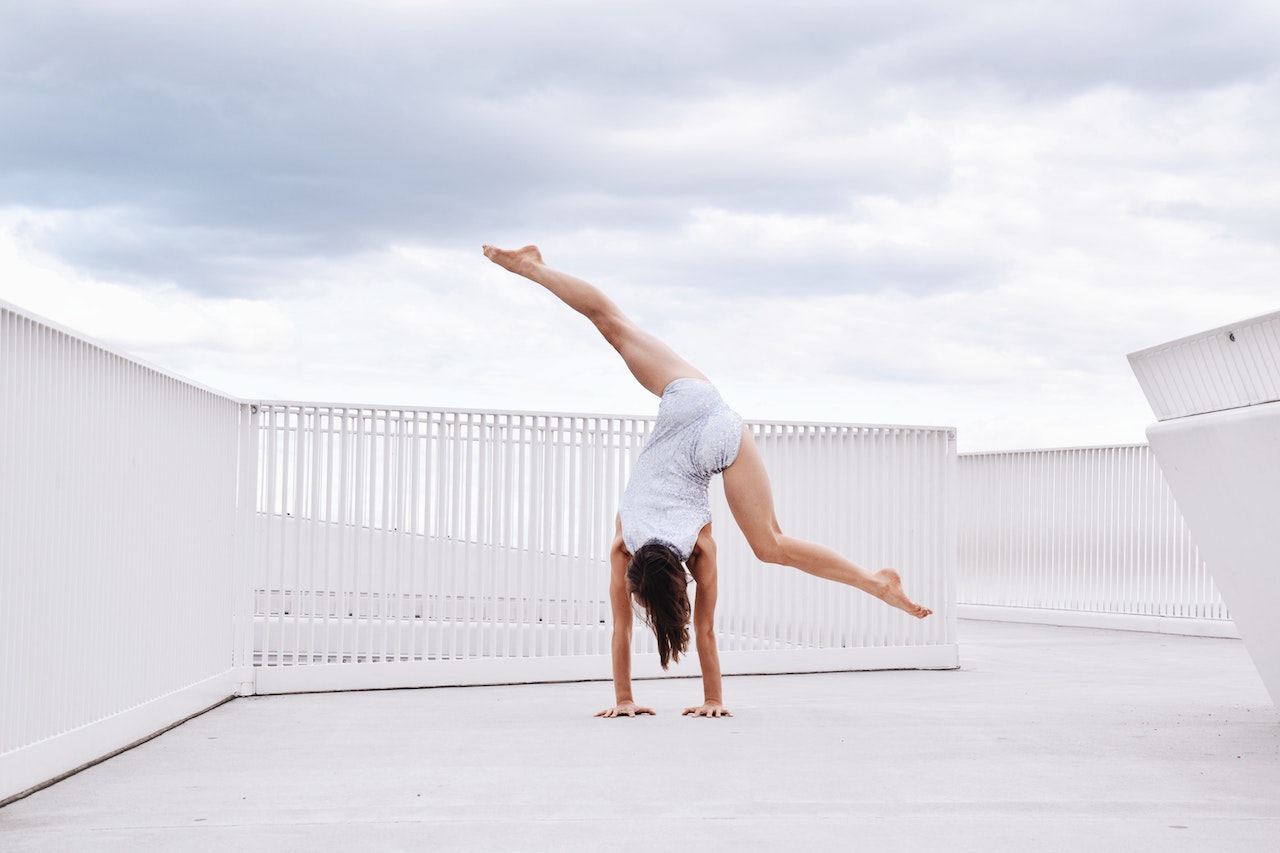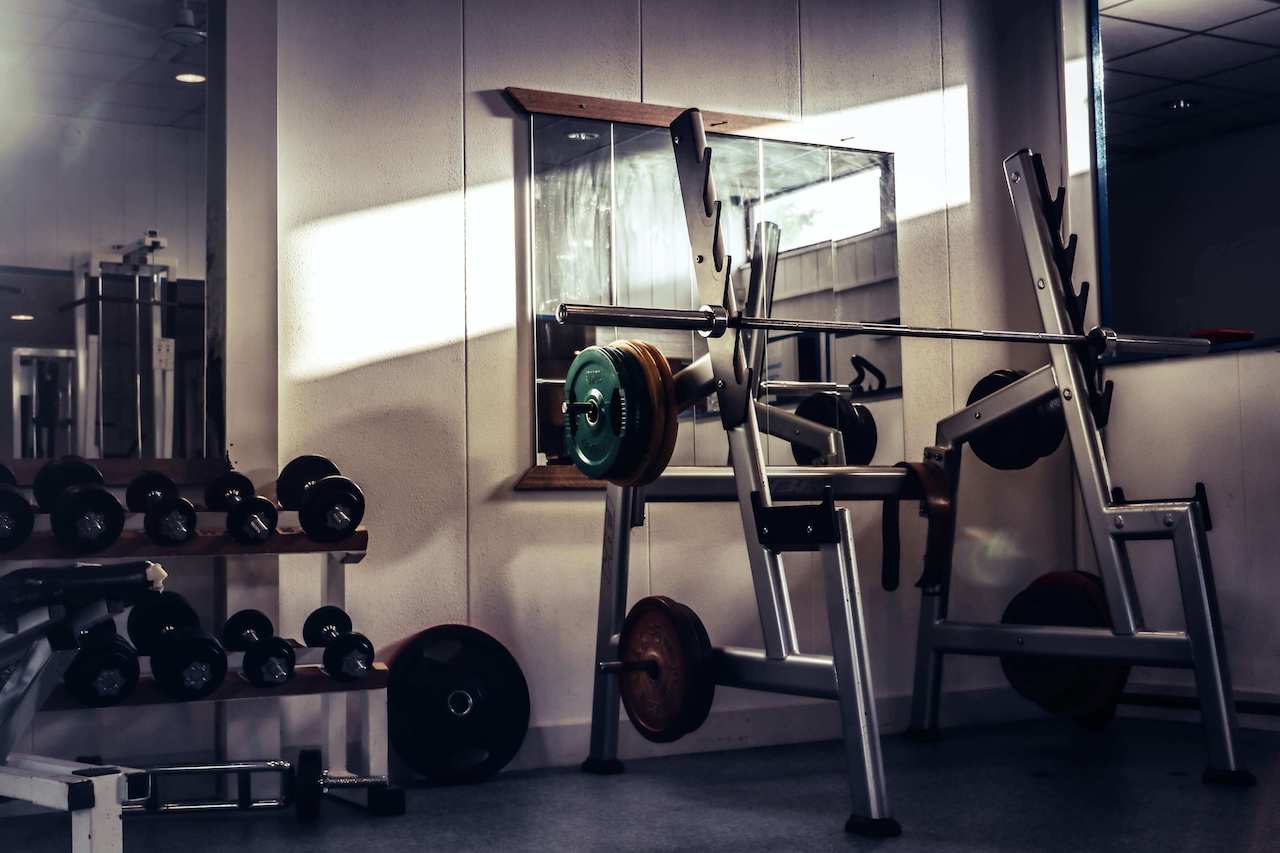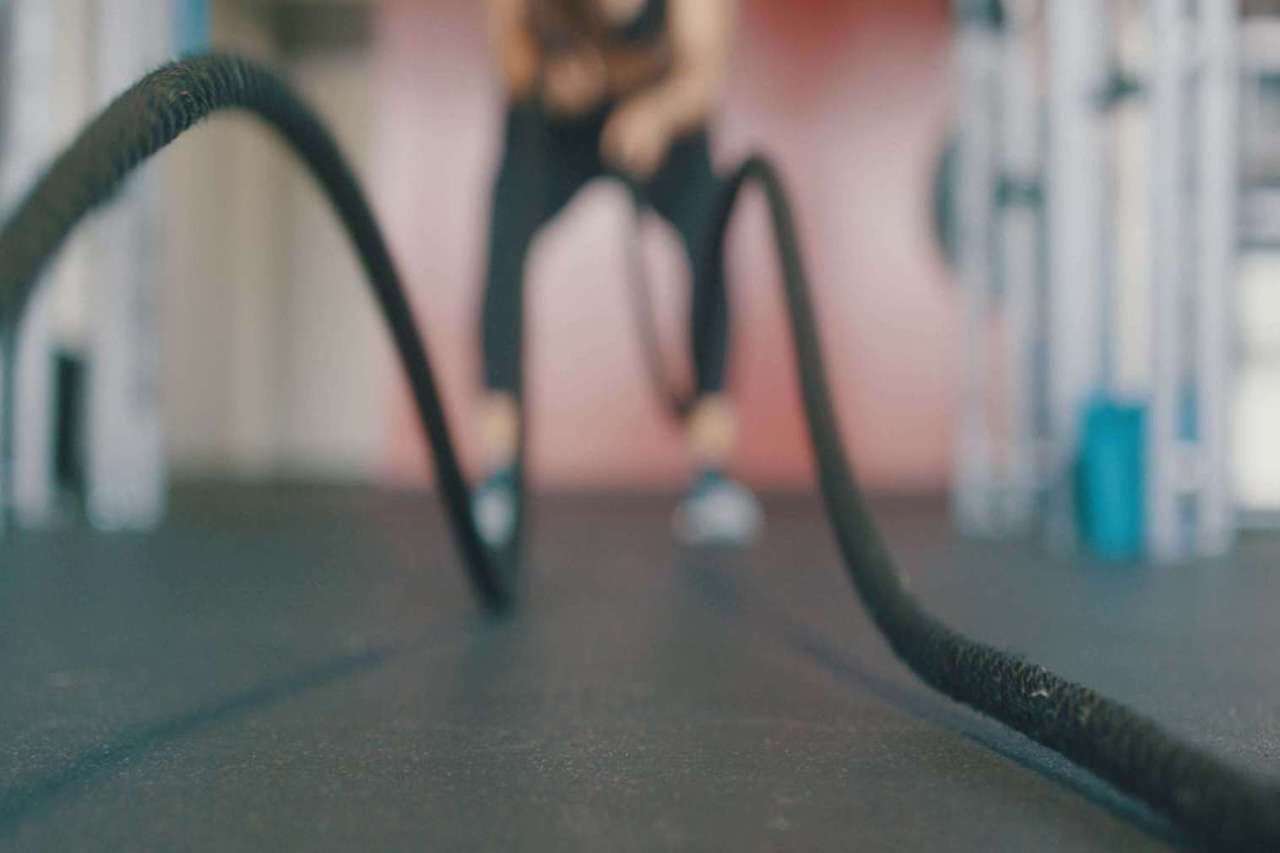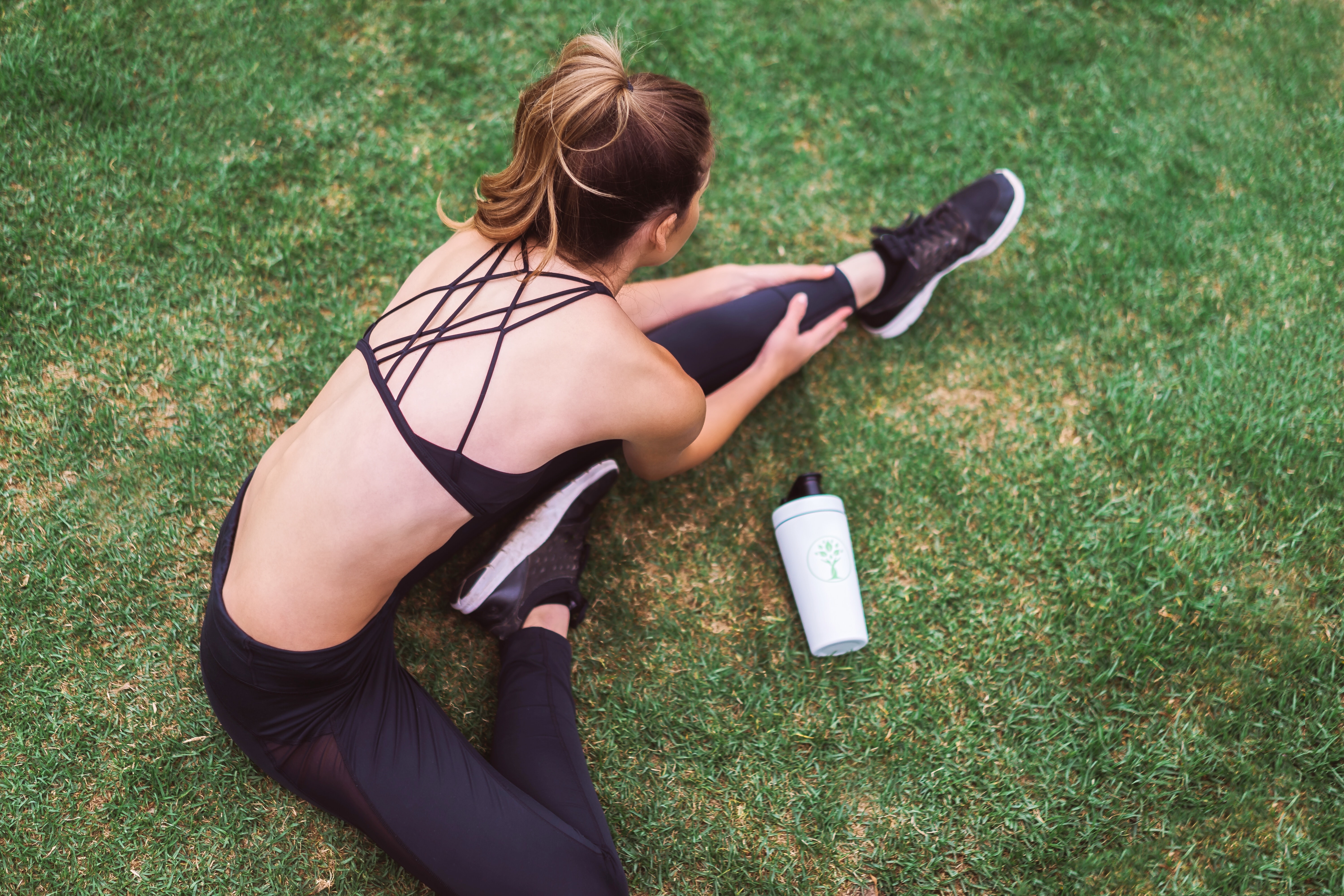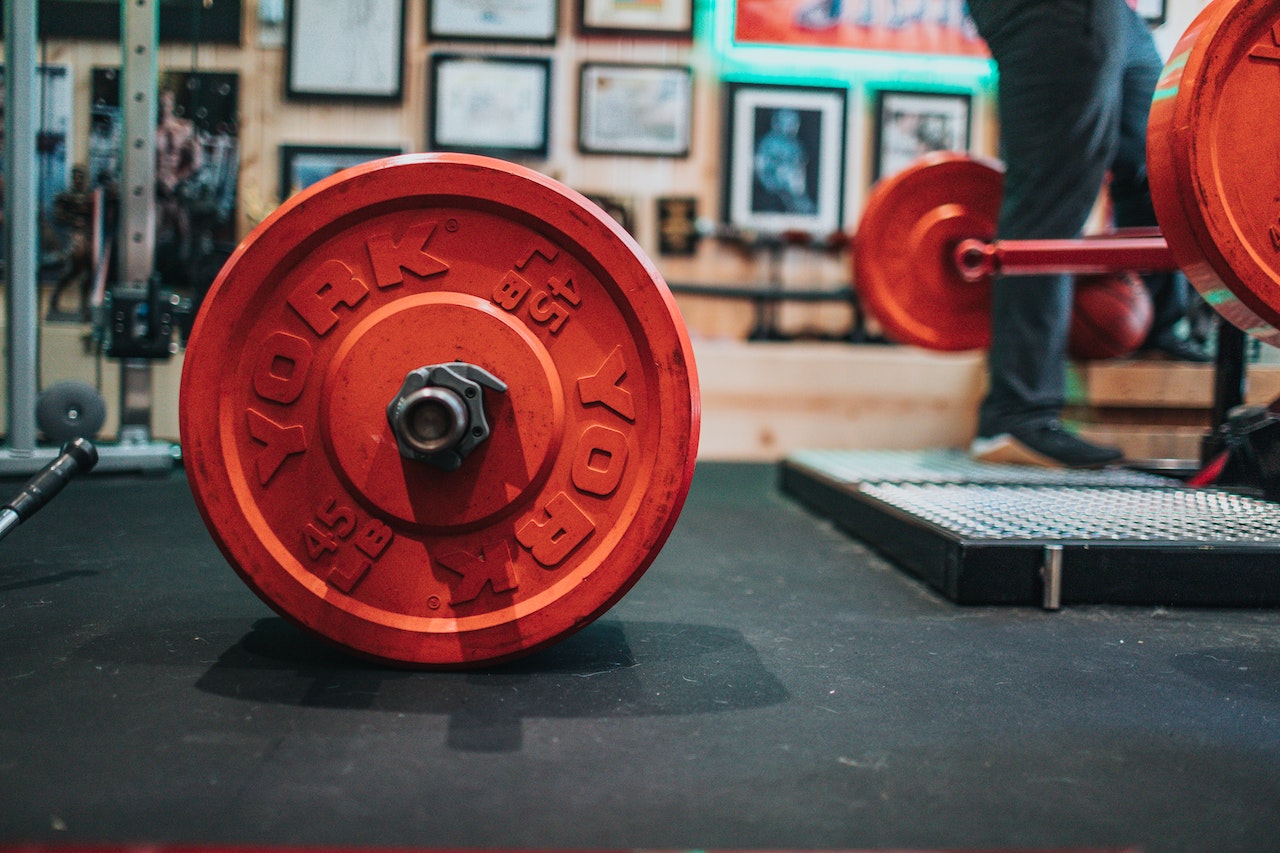As human beings, we have certain aspirations for a certain thing and then we always take practical action for it. For example, if we want to master a skill, we spend a lot of time learning about it; if we want to have a good body, we suppress our desires, control our diet and do a lot of exercise. In terms of body importance, most of our focus is on our belly, wanting to lose our big belly and to develop a signature waistline.

For the abdominal waistline then, the prerequisite for obtaining it is a lower body fat percentage, as soon as the fat covering the top of the muscle is consumed, the contours of the muscle will show and this will want to become a waistline. This means that the production of abs requires a low body fat percentage and abs with a certain thickness. If you have a bulky body, your abs will be covered with fat no matter how much stimulation is done to them, so it is important for those with fat bodies to not only work on their abs but also to lose fat.
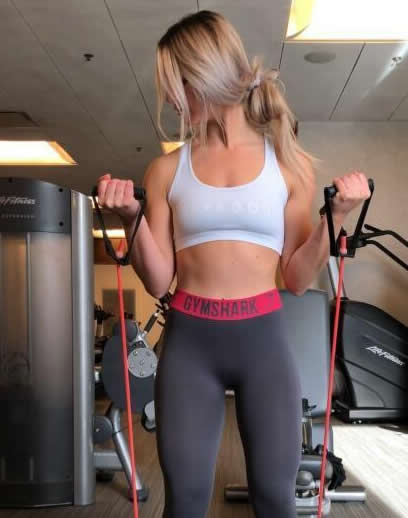
Exercising the abs is relatively simple and involves strength training the abs. Fat loss, on the other hand, is more complex and requires not only regular training, but also a controlled diet. Many people fail to lose weight not because they exercise, but mainly because they can't control themselves and leave the idea of losing weight behind when they encounter food. What is more important in the dieting process is to have self-control and perseverance. If you feel that it is too much trouble, you can also try hiit training, which can stimulate your abs and burn a lot of calories in a short time.

The next set of abdominal circuit training moves are not too difficult for women and can be done at home. In practice, rest for about thirty seconds between each movement and perform three sets each time, just three times a week. Of course, the warm-up before training must not be neglected and a proper diet should be followed during the training process.
Movement 1: Open and closed jump (30 seconds of continuous training)
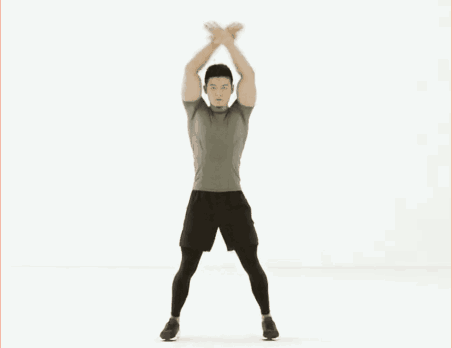
First stand naturally with your feet apart, arms naturally down and straighten your back to stand naturally. Then jump up with your feet to your sides while your arms are straightened upwards and high-fived above your head. Then immediately afterwards, the legs jump back inwards while the arms fall back down towards the bottom. This movement is more of an aerobic workout, so try to keep it consistent and cushion your feet as you land.
Movement 2: Side support hip lift (20 reps in one session)
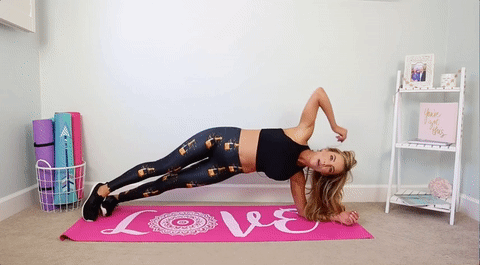
Begin by lying on your side on the ground with your lower arm bent at the elbow so that your lower arm is propped up on the ground and your upper arm is crossed or straightened out and raised. Keep your legs straight and together, and then use your abdominal muscles to lift your hips upwards so that your body is in a straight line. Pause for a moment at the apex and then lower slowly back down. In this movement, pay attention to the stability of the body, swinging the hips up and down in the same plane as the body.
Movement 3: V-twins (15 reps in one session)
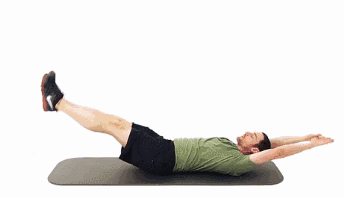
Start by lying on your back on the ground with your legs together and straight, back to the ground and arms straight up. Then the abdominal muscles fire to curl the upper body upwards, allowing the shoulders and upper back to lift off the floor. Raise your legs upwards at the same time, letting your hands touch your knees as far as possible. Then after a short pause, lower back down. Be careful not to let your lower back leave the floor in this movement and to keep your arms free.
Movement 4: Supine cycling (thirty seconds in a row)
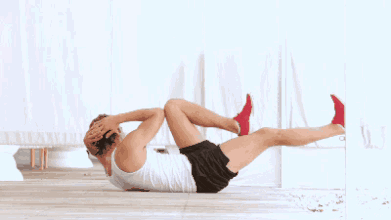
Start by lying on your back on the floor with your arms bent at the elbows and your hands on the back of your head, raise your shoulders so that they and your upper back are lifted off the floor and bend your legs so that your calves are parallel to the floor. The abdominal muscles are then activated to turn the upper body to one side of the body while the leg on the other side is bent and the leg on the same side as the back pulling arm is straightened forward. Try to keep your elbows touching your knees as much as possible and continue the exercise.
The above four exercises are great abdominal training exercises, but in practice you don't have to follow them to the letter, you have to adapt them to your own situation. If you feel uncomfortable during a workout, you can take longer breaks or stop training.


